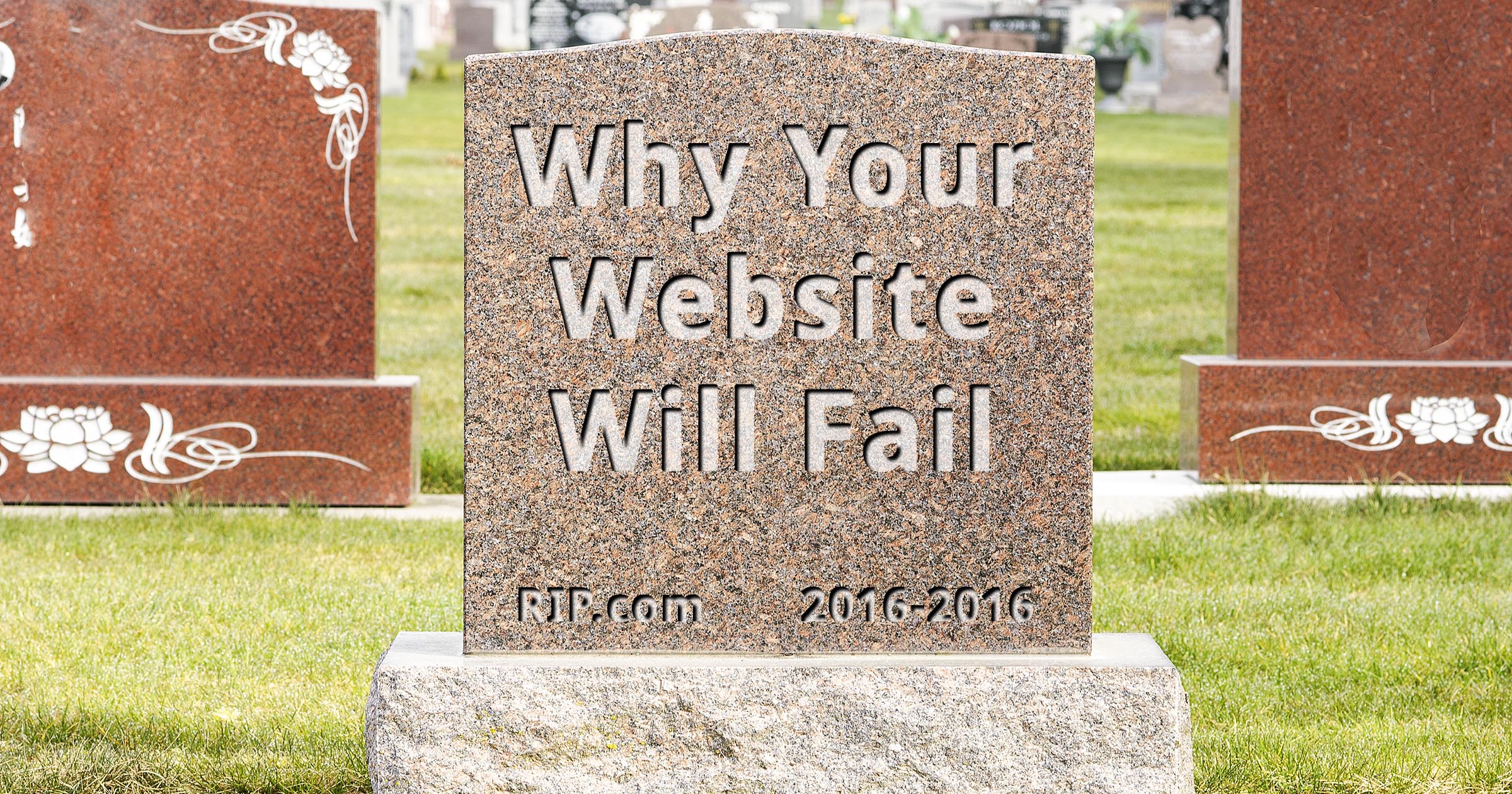It’s time for a little straight talk. The kind of talk that only someone who cares will have with you.
There’s a really good chance your website will fail.
By “fail”, I mean it’ll fail to rank in the search engines, and fail to attract new visitors, clients, or customers. It won’t lend credibility to your business or cause, and it won’t improve your reputation in your area of expertise.
I know that sounds really depressing. After all this work, it’s going to fail?
Well, there’s bad news and there’s good news.
The bad news is, you’re likely the reason for the failure.
The good news is, you can fix that.
The dead website
The single most common reason for failure is simply this: the website languishes and never changes. In the worst case, it’s ignored to the degree that the information it does contain is woefully out of date or just wrong.
Stagnation = death on the web.
I can hear you say, “But everything on it is correct – it doesn’t need updating”. That may be true, but it’s not enough.
The internet thrives on signs of life. Especially if you’re in anything even close to competition with other sites and entities, a site that is regularly updated is considered more interesting by search engines, visitors, and potential customers or clients.
I’d guess four out of five new websites will suffer the slow death of neglect.
Keeping the site alive
By now you know what’s necessary to keep your website healthy and vibrant: fresh content.
It doesn’t have to be much, and it doesn’t have to be often. Maybe 300-500 words once a week1 that adds value to your potential clients, customers, followers, or friends. That’s as simple as answering a question once a week.
Of course, more can be better. More frequency and more depth can add more value, it’s true. But “more” shouldn’t be a roadblock to “any”.
Short, weekly content that truly adds value for your visitors is much better than more frequent, lengthier “fluff” that does not. Publishing just to publish isn’t what I’m suggesting here. Adding value remains the goal.
It’s just not as hard as you might think, and more important than you might realize.
Resurrecting the dead
So, what if you’re guilty?
Maybe you threw together a website last year in a rush of excitement, bogged down in the details, and left it to wither and die.
There’s actually really good news here:
- That fact that your website has been around for however long is always a good thing. It’s better than starting over today.
- It’s never too late to start adding content and showing signs of life.
- Even if it’s technical issues, or “it’s not pretty enough” that’s holding you back, publishing fresh content will still help.
Reviving an old, dead website with fresh content is usually easier than starting over with a new domain or site.
Commit to the future
Ultimately, the solution to a dead or dying website is very simple: make a decision.
First, commit to keeping the basic information on your site up to date. That means keeping your hours, phone number, location, and contact information (all the stuff that never changes until it does) up to date. This is critical; just think of how frustrating it is to look up a business’ location online only to find that they moved and never updated their web site. Never, ever, do that to your people.
Second, prioritize new content creation. Once a week, create a new blog post or article that adds value to the world.
If you’ve set up a newsletter, use that as your motivation. One of the best things I ever did for Ask Leo! was to create a newsletter with a fixed publication schedule. Having a deadline, and readers who expect a newsletter each week, ensures that I’m at my keyboard, adding value as I can each and every week.
Since you’ve gone through the steps to establish your presence on the web, it’d be a shame for all that to languish in the internet’s deadpool.
♥
Footnotes
1: To give you an idea of how much writing we’re talking about, Wordpress tells me this article is around 750 words long. Even half that would do. I’m currently publishing Ask Leo! On Business once a week.
Podcast: Download (Duration: 4:33 — 2.2MB)

Coincidentally my friend Jeff Walker posted something that feels very related: